Many cat owners often wonder about their furry friend's dietary preferences and curiosities, especially when it comes to fruits. One question that might arise is whether cats can have strawberries.
Cats can eat strawberries in moderation, providing an excellent source of vitamin C, folate, potassium, and manganese, as well as antioxidants and fiber.
It's important to note that while these nutrients are beneficial, their effects are not significantly noticeable in cats due to their inability to consume large amounts safely.
Potential Risks
While strawberries are generally safe for cats, it is essential to introduce them slowly and in small quantities, considering the high carbohydrate content that could pose problems if consumed in large amounts.
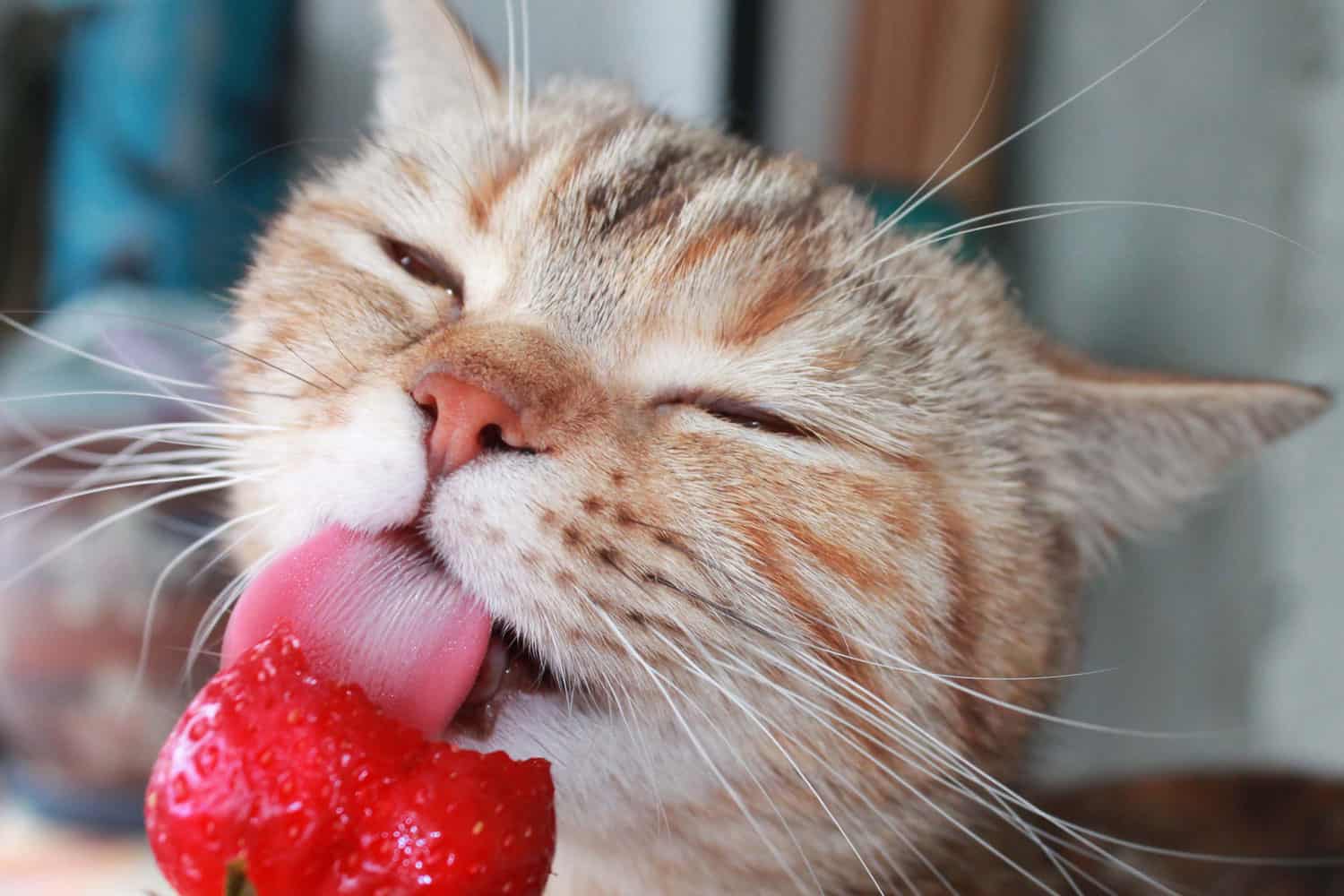
Overconsumption of strawberries, or fruits in general, can result in gastrointestinal distress such as vomiting, diarrhea, constipation, and other health issues for your feline friends.
Especially diabetic cats should be given careful consideration due to the high sugar content in strawberries.
Offering Fruits As Treats For Cats
Fruits, including strawberries, should make up only about 2% of your cat's diet. This equates to a daily serving roughly the size of a 1-inch piece.
Serving fruits as an occasional treat can be an effective alternative to regular cat treats, especially if you're aiming for your cat's weight loss.
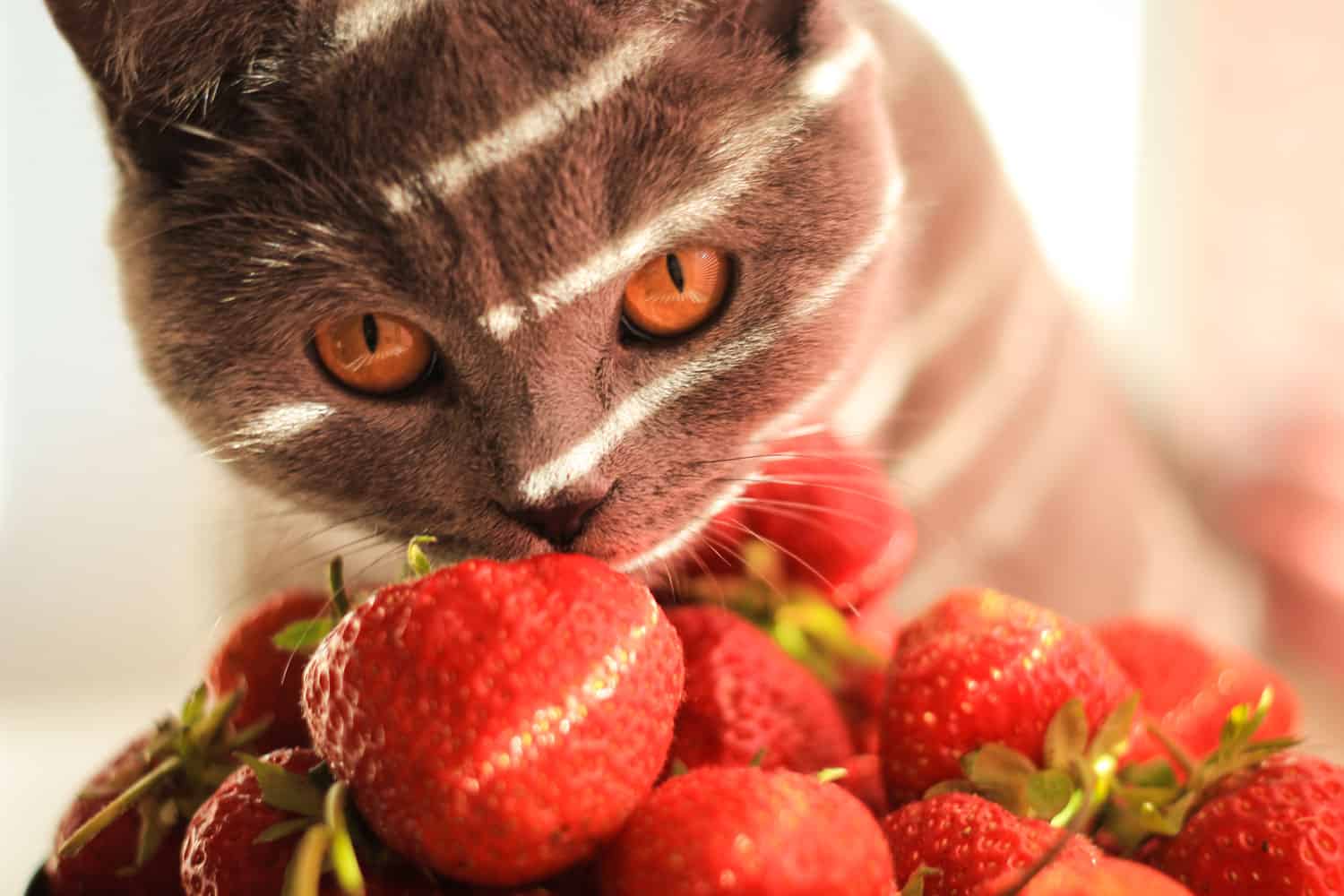
Remember to serve fruits separately from their usual meals, and they can be offered either fresh or frozen. Always ensure the pieces are small enough to prevent any choking hazards.
When feeding strawberries to your cat, remove the stem, leaves, and cut the fruit into small bite-sized pieces.
Do Cats Like Strawberries?
While some cats may develop a preference for strawberries, recent research suggests that cats lack the taste buds necessary to fully appreciate sweetness.
However, cats may still be attracted to the texture, juiciness, or even the aroma of strawberries.
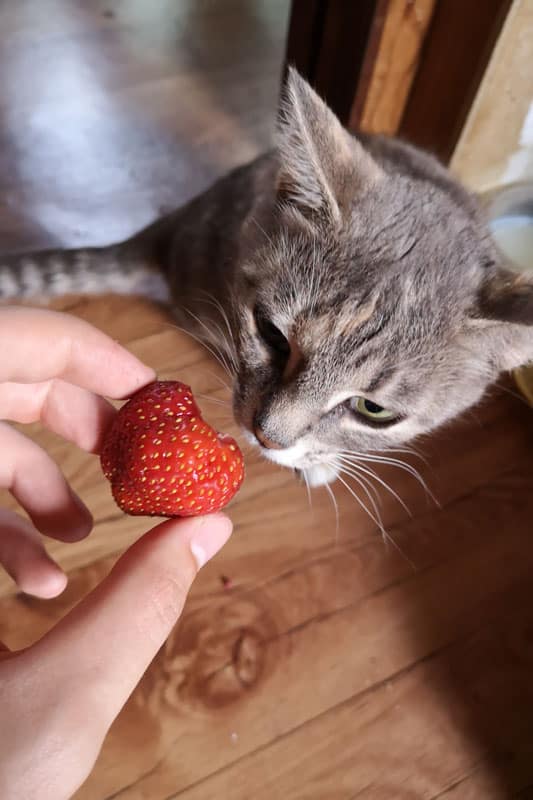
It's important to note that not all cats will show interest in strawberries, and those who do may only try them once without developing a long-term liking for them.
Each cat has unique taste preferences, so it's possible that some cats may enjoy strawberries more than others.
Other Fruits Safe For Cats
In addition to strawberries, there are several other fruits that are safe for cats to consume in moderation.
Blueberries
They are low in calories and can be easily integrated into your cat's diet in small quantities.
Apples
Cats can eat apples, but it's important to remove the seeds and core beforehand. The seeds contain cyanide which can be harmful to cats in large amounts.
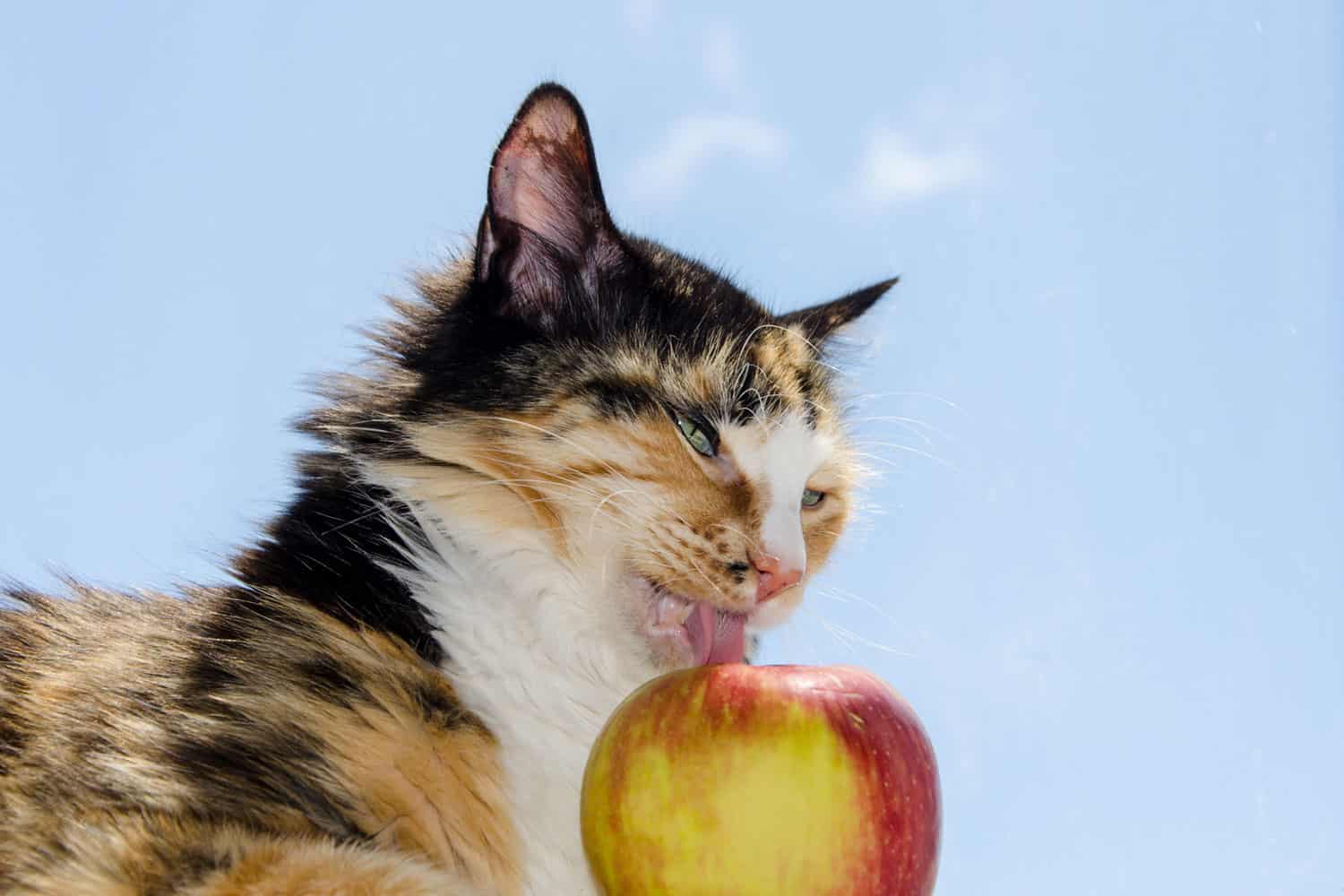
Always wash the apple thoroughly and cut it into manageable pieces before feeding it to your cat.
Bananas
Another fruit cats can safely consume is bananas. However, due to their high sugar content, bananas should only be given in moderation. A small piece of banana can be a sweet treat every now and then.
Watermelon
This hydrating fruit can be a refreshing treat for your cat, especially during hot summer days.
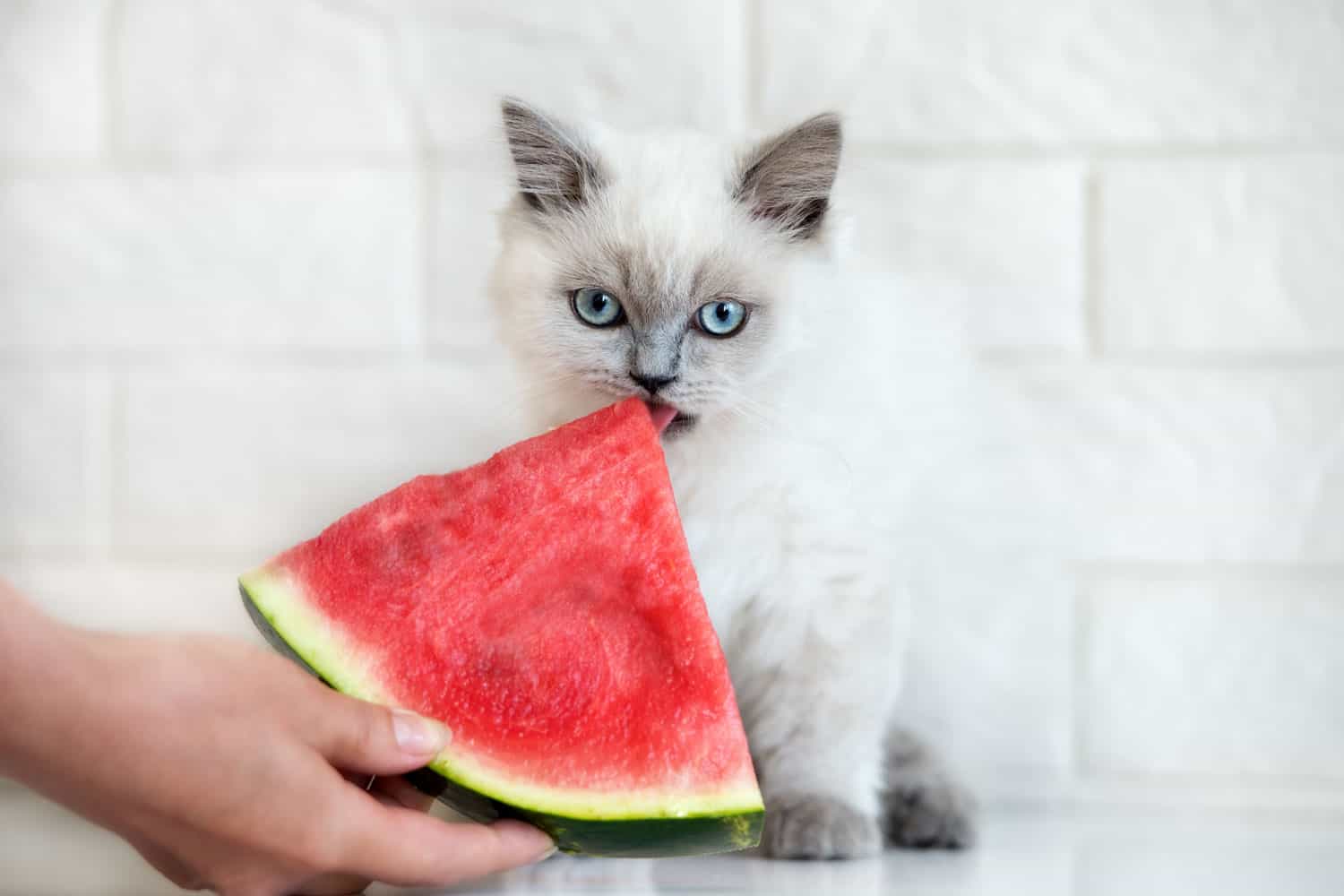
Make sure to remove the seeds and rind before serving it to your cat as these parts can pose a choking hazard or cause digestive issues.
Cantaloupe
Like watermelon, cantaloupe is a hydrating fruit that some cats may enjoy. The soft texture and sweet taste can make it appealing.
Always remove the seeds and cut the cantaloupe into small pieces before offering it to your cat.
Though these fruits are generally safe for cats, it's important to remember that a cat's primary diet should consist of high-quality commercial cat food or a balanced raw or cooked diet designed for cats.
Any introduction of new food should be done gradually and with close monitoring for any adverse reactions.
If your cat shows signs of gastrointestinal distress or any other symptoms after eating these or any other new foods, it is recommended to consult a vet immediately.
Also, it's always a good idea to consult with your veterinarian before making any significant changes to your cat's diet or introducing new treats.
This is especially important for cats with health conditions or specific dietary requirements. Your vet can provide guidance on the best dietary choices for your cat's health and well-being.
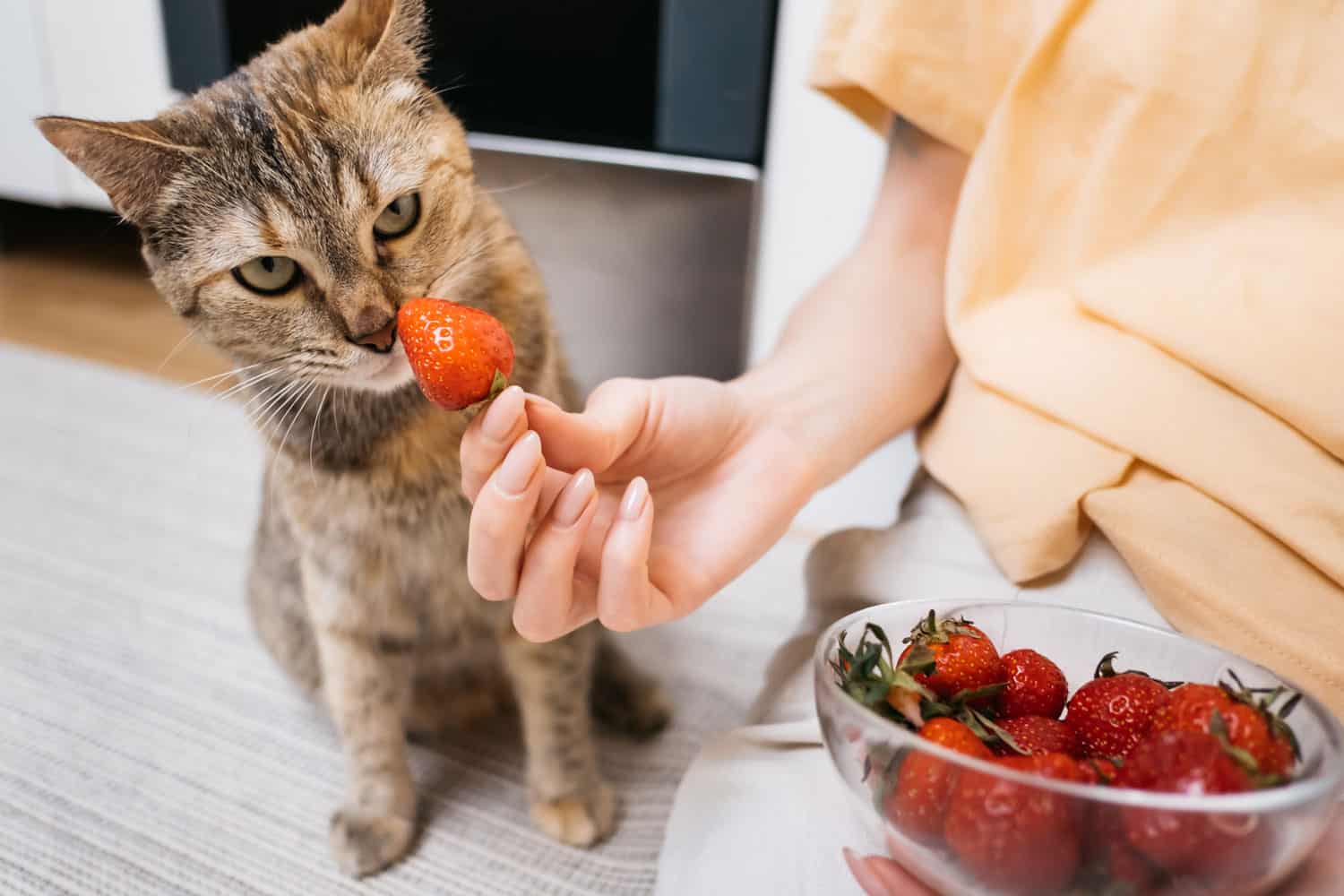
Fruits Cats Should Avoid
While several fruits are safe for cats to consume in moderation, there are also a number of fruits that cats should strictly avoid due to their potential toxicity. Here are some fruits that are not safe for cats:
Citrus Fruits (Lemons, Limes, Grapefruit, Oranges)
Citrus fruits are not recommended for cats. The essential oils and citric acid in these fruits can cause an upset stomach.

In larger quantities, they can even cause central nervous system depression.
Grapes and Raisins
Grapes and their dried counterparts, raisins, can cause kidney failure in cats. Even small amounts can make a cat ill, so these should be avoided entirely.
Avocado
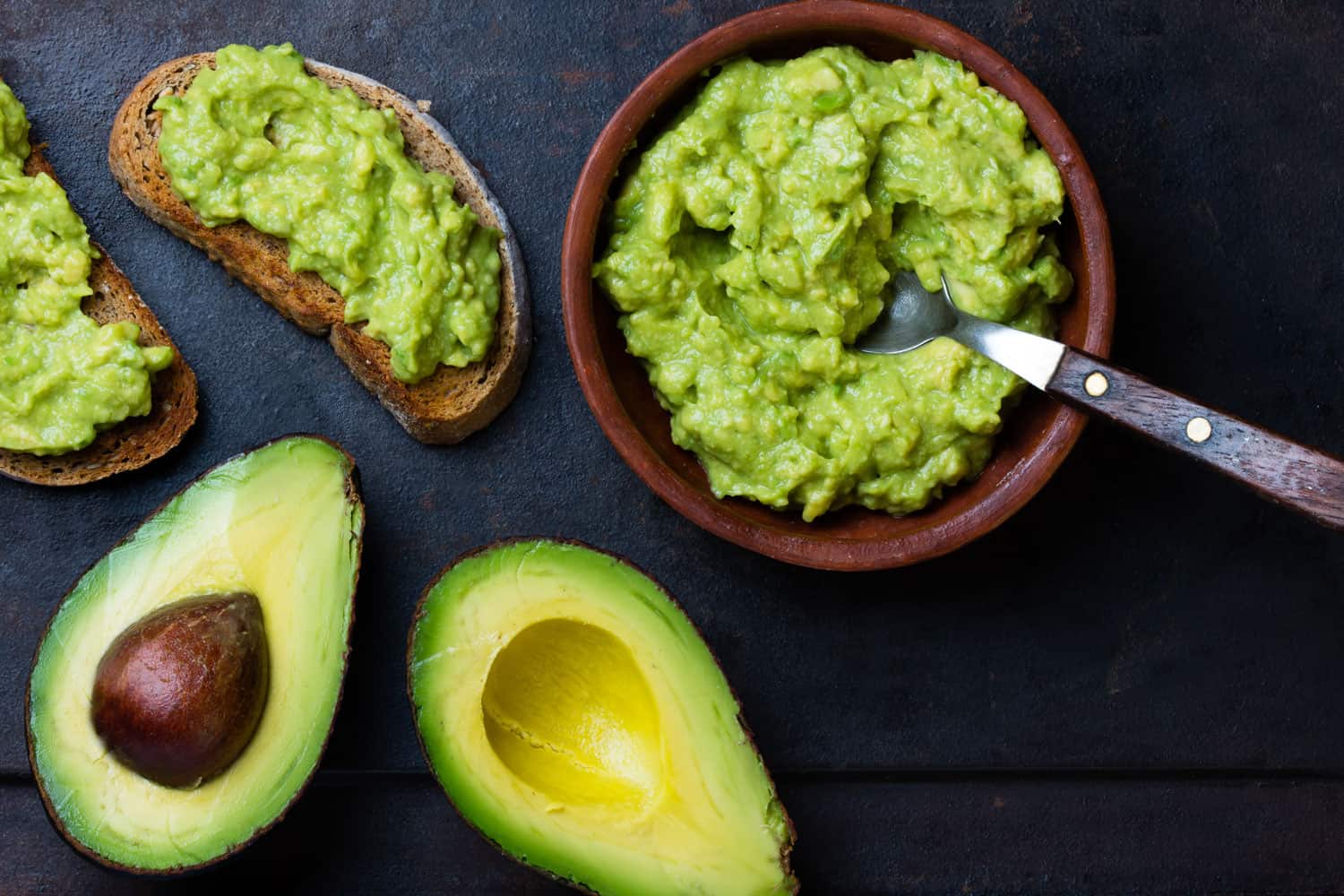
While avocados are not typically harmful to cats, they do contain a toxin called persin which can cause vomiting and diarrhea.
Cherries
The pits, leaves, and stems of cherries contain cyanide, a poison that can lead to difficulty breathing, panting, and shock in cats. While the fruit part of the cherry is safe, it can be difficult to ensure no other parts are ingested.
Final Notes: Can Cats Have Strawberries?
Cats can safely enjoy strawberries in moderation. When introducing strawberries, start with small quantities due to their high carbohydrate content.
In addition to strawberries, cats can also consume other fruits like blueberries, apples, bananas, watermelons, and cantaloupes, but these should only be a small part of their diet.
It's important to remember that a cat's main diet should consist of high-quality commercial cat food or a balanced raw/cooked diet designed for their nutritional needs.
Certain fruits, such as citrus fruits, grapes, raisins, avocados, and cherries, should be avoided due to potential toxicity.
By considering safe fruit options and your cat's preferences, you can provide occasional fruit treats that contribute to their health.
Regular veterinary check-ups and open communication with your veterinarian will ensure your cat's dietary needs are met while keeping them safe and happy.
Read more:
Can Cats Eat Cucumbers? Everything You Need to Consider
Should A Cat Be Rewarded With A Sugary Treat?
Some elements on this page may have been created by our team using advanced AI to provide you with top-notch cat inspired ideas. Read more about our AI Content Policy.
